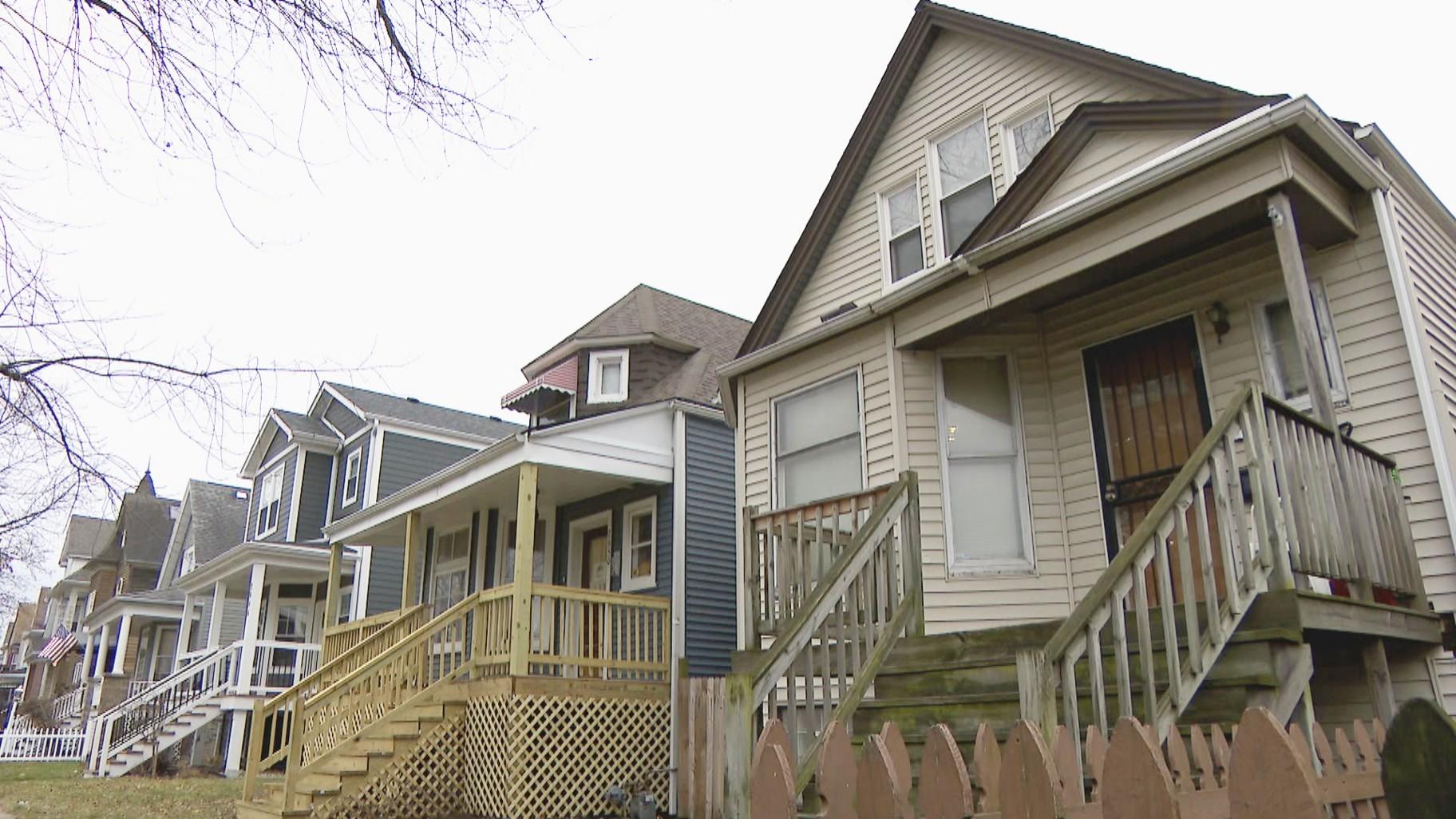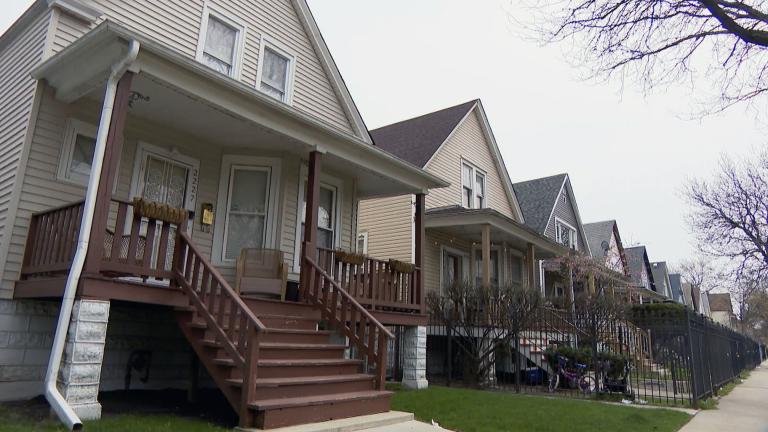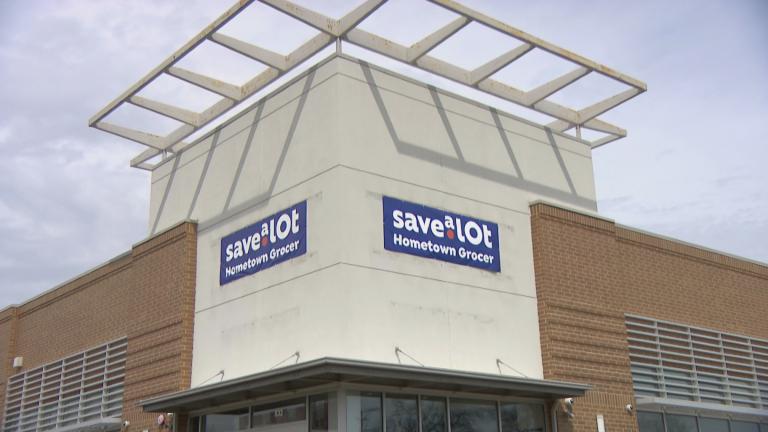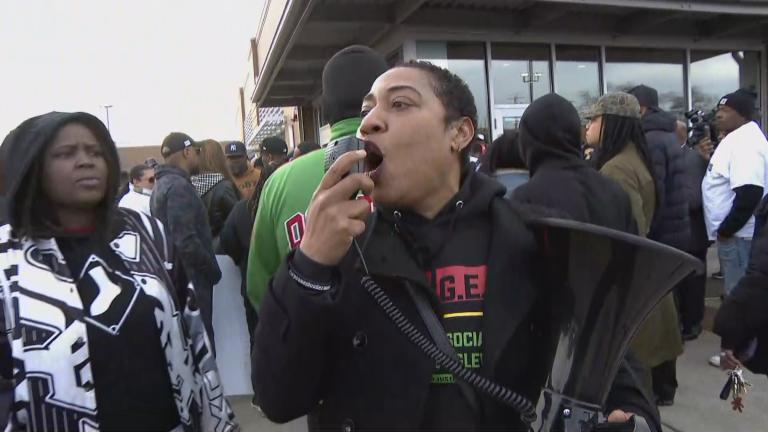 (WTTW News)
(WTTW News)
The Chicago City Council voted 32-17 on Friday to borrow $1.25 billion during the next five years to fund a wide-ranging slate of projects designed to expand the supply of affordable homes and good-paying jobs.
The approval represents a major win for Mayor Brandon Johnson, who has touted the proposal as a way to make Chicago a more equitable place to live by “investing in people” and expanding the city’s economic capacity — without raising taxes on Chicago property owners. The change fulfills a promise Johnson made during the 2023 campaign for mayor.
Ald. Pat Dowell (3rd Ward), the chair of the Finance Committee, called the proposal “historic,” saying it was designed to allow the city to provide assistance for new businesses, restaurants, affordable homes and cultural facilities not just in parts of the city where property tax revenue has been growing, but also where it has been stagnant or declining for many years — a reminder of the legacy left by modern segregation.
Dowell also rebutted suggestions that there was not enough oversight baked into the plan, which represents a massive change in the way the city funds economic development efforts.
“This is not a blank check,” Dowell said.
The vote, delayed 48 hours by intractable opposition from some members of the City Council, begins the process of phasing out the city’s decades-long reliance on tax increment financing districts, known as TIFs, and will reshape the way Chicago uses its financial resources to spur redevelopment and eradicate blight.
The final sticking point centered around a demand to increase the control the City Council has over how the funds are spent. The plan approved by the City Council will require alderpeople to approve every project of more than $5 million, a provision that Johnson added in response to complaints from alderpeople.
An effort to reduce that limit to $1 million by Ald. Brendan Reilly (42nd Ward) narrowly failed on a vote of 27-22.
“This isn’t play money,” Reilly said. “What are we doing here?”
Ald. Bill Conway (34th Ward) tried again Friday to reduce the amount of money the city could borrow to $750 million, but failed. Conway’s effort on Monday to cap the borrowing at $350 million also failed during a committee vote.
Ald. Raymond Lopez (15th Ward) followed up those unsuccessful attempts with his own failed attempt to set the threshold for City Council approval at $2.5 million.
That push to change such a complex measure on the floor of the City Council is highly unusual and represented a rebuke of Johnson by two downtown alderpeople: Conway — a rookie — and Reilly, who is in his fifth term on the City Council.
Ald. Walter Burnett (27th Ward) was incredulous that his colleagues were fighting with the mayor over a proposal that could bring new developments to their wards that they could tout during the next election.
“Keep playing,” Burnett said, warning his colleagues of consequences for their opposition.
Burnett said the tumult reminded him of the period time in the 1980s known as council wars, which saw a block of White alderpeople thwart the initiatives of the first Black man elected mayor, Harold Washington. Johnson is the second Black man to be elected Chicago mayor.
“It’s interesting that this only happens when there is a Black man up there,” Burnett said.
The plan calls for the city to borrow no more than $250 million per year, which will cost the city $81 million per year in debt service, according to Jill Jaworski, Chicago’s chief financial officer. In all, the city would be on the hook to pay back $2.4 billion through 2061, she said.
Planning and Development Commissioner Ciere Boatright touted the program as a “game changer for Chicago’s most vulnerable communities,” while Housing Commissioner Lissette Castañeda said the initiative would shape Chicago “for generations” by confronting the city’s serious shortage of affordable housing.
Since their creation in the mid-1980s, TIFs have been beloved by alderpeople for providing a dedicated fund for a host of programs, ranging from road improvements to school additions and expanded park facilities. Those projects are not OK’d without the approval of local alderpeople, giving them a large amount of power at City Hall.
That means transforming those dollars into a citywide pool of money runs the risk of reducing each alderperson’s power — and forces alderpeople to compete with their colleagues and lobby the mayor to ensure that their favored projects and initiatives are funded.
Critics of TIFs have long believed they are inherently inequitable by generating the fewest resources in areas where the need is the greatest.
For many years, TIF districts have claimed a growing share of city property tax revenues, fueling the debate over whether the districts, which capture all growth in the property tax base in a designated area for 23 years, exacerbate growing inequality in Chicago.
Typically, as those districts expire, city officials have asked state lawmakers to extend the districts’ lives. But with 47 TIFs expiring in a short period, that is unlikely — which could shrink the amount of funds available for economic development projects significantly, officials said.
That means Chicago is facing two distinct fiscal challenges: the exhaustion of the city’s remaining federal COVID-19 relief funds and the end of huge surpluses in the city’s TIF districts, which has helped balance the city’s budgets, officials said.
Once those TIF districts expire, the funds they had been collecting — estimated at $2.2 billion through 2039 — would flow instead to the area’s taxing districts, including the city, Chicago Public Schools and the Chicago Park District. That would allow the city to pay off the debt without triggering a property tax increase, officials said.
The city’s remaining TIFs will focus on areas of the city where those funds can have the biggest impact, officials said.
Contact Heather Cherone: @HeatherCherone | (773) 569-1863 | [email protected]






